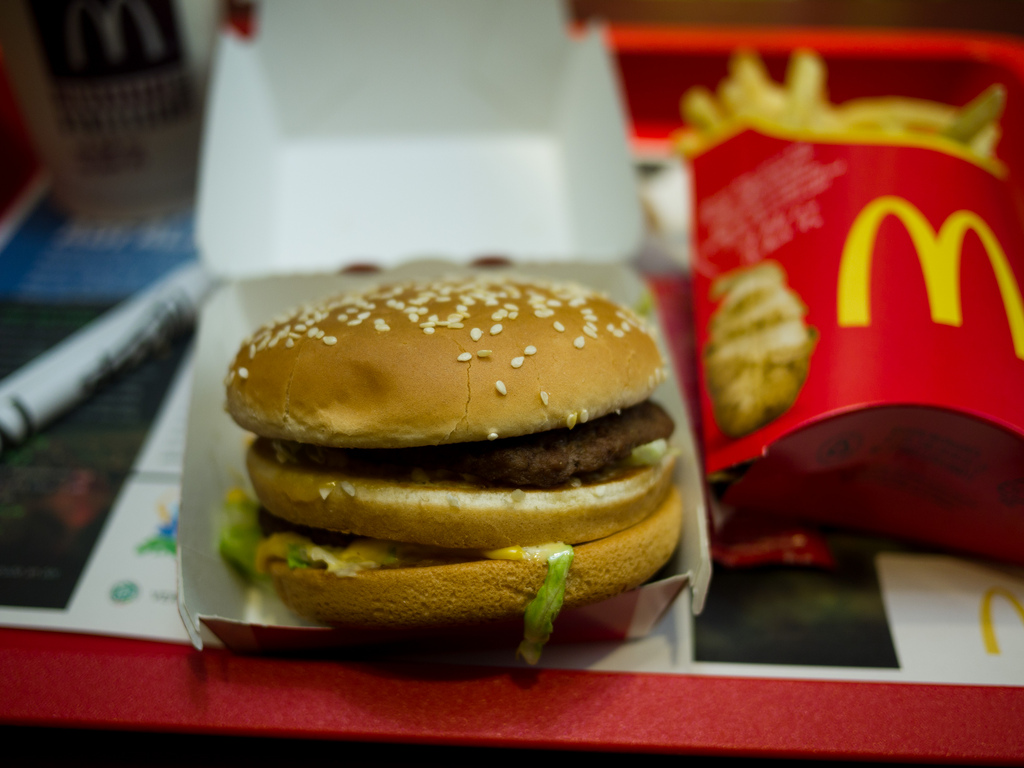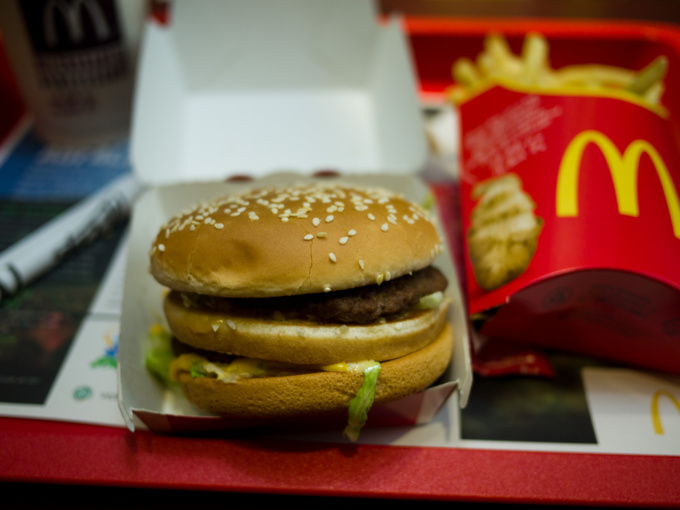According to the channel, single McDonald's supplier ran out of finished pieces of bread, which are essential for the burger.
Previously, McDonald's already faced a shortage of raw materials in Venezuela. Instead of French fries, the restaurants chain had to temporarily offer customers local yucca root.
Venezuela is suffering from an acute shortage of goods against the background of inflation and shrinking government revenues due to the falling oil prices. According to Datanálisis service polls, supermarkets Caracas are missing 80% of the main items of mass consumption goods.
As Globovision noted, Big Mac costs 1700 bolivars in Venezuela, which is equivalent to $ 1.7.
In 2015, drafters of the "Big Mac Index", which determines the purchasing power parity, named the Venezuelan bolivar most undervalued currency in the world. Experts of The Economist magazine, conducts the study, are based on the idea that same products in different countries of the world should cost about the same. Big Mac has been taken as a reference, because McDonald's is represented in most of the world’s countries.
In mid-July, 35 th. Venezuelans visited neighboring Colombia to purchase the most necessary, which has become a deficit in their homeland, according to Financial Times. They took advantage of Nicolas Maduro’s decision to open the border for 14 hours. Recall that the border had been closed since last August.
In the border city of Cucuta, Colombia, Venezuelans bought rice, vegetable oil and corn flour, which in their homeland are deficient or are sold secondhand dealers at exorbitant prices, writes the FT.
Publication with reference to high-ranking Colombian officials reported on the development plan for the reception of refugees in the event of social unrest in the neighboring country, where there are about 3 million Colombians.
At least 500 women from Venezuela broke through the cordons border to buy food for their families. José Gregorio Velma Mora, Governor of the Venezuelan border state Táchira said that this action was planned by the opposition to create a "chaos".
FT citing industry sources says that food production in Venezuela has declined sharply as a result of the state control over prices and currency exchange operations, as well as after nationalization of the food industry.
According to consulting company Ecoanalítica from Caracas, the government owns US $ 30 billion to private suppliers and importers. The FT notes that shortage of consumer goods may increase further, since companies cannot buy raw materials or stable currency.
The publication adds that business and consumers have been adversely affected by high inflation. According to IMF estimates, this year it will be 481%, and the next is expected to bring terrifying 1647%.
Previously, McDonald's already faced a shortage of raw materials in Venezuela. Instead of French fries, the restaurants chain had to temporarily offer customers local yucca root.
Venezuela is suffering from an acute shortage of goods against the background of inflation and shrinking government revenues due to the falling oil prices. According to Datanálisis service polls, supermarkets Caracas are missing 80% of the main items of mass consumption goods.
As Globovision noted, Big Mac costs 1700 bolivars in Venezuela, which is equivalent to $ 1.7.
In 2015, drafters of the "Big Mac Index", which determines the purchasing power parity, named the Venezuelan bolivar most undervalued currency in the world. Experts of The Economist magazine, conducts the study, are based on the idea that same products in different countries of the world should cost about the same. Big Mac has been taken as a reference, because McDonald's is represented in most of the world’s countries.
In mid-July, 35 th. Venezuelans visited neighboring Colombia to purchase the most necessary, which has become a deficit in their homeland, according to Financial Times. They took advantage of Nicolas Maduro’s decision to open the border for 14 hours. Recall that the border had been closed since last August.
In the border city of Cucuta, Colombia, Venezuelans bought rice, vegetable oil and corn flour, which in their homeland are deficient or are sold secondhand dealers at exorbitant prices, writes the FT.
Publication with reference to high-ranking Colombian officials reported on the development plan for the reception of refugees in the event of social unrest in the neighboring country, where there are about 3 million Colombians.
At least 500 women from Venezuela broke through the cordons border to buy food for their families. José Gregorio Velma Mora, Governor of the Venezuelan border state Táchira said that this action was planned by the opposition to create a "chaos".
FT citing industry sources says that food production in Venezuela has declined sharply as a result of the state control over prices and currency exchange operations, as well as after nationalization of the food industry.
According to consulting company Ecoanalítica from Caracas, the government owns US $ 30 billion to private suppliers and importers. The FT notes that shortage of consumer goods may increase further, since companies cannot buy raw materials or stable currency.
The publication adds that business and consumers have been adversely affected by high inflation. According to IMF estimates, this year it will be 481%, and the next is expected to bring terrifying 1647%.



















